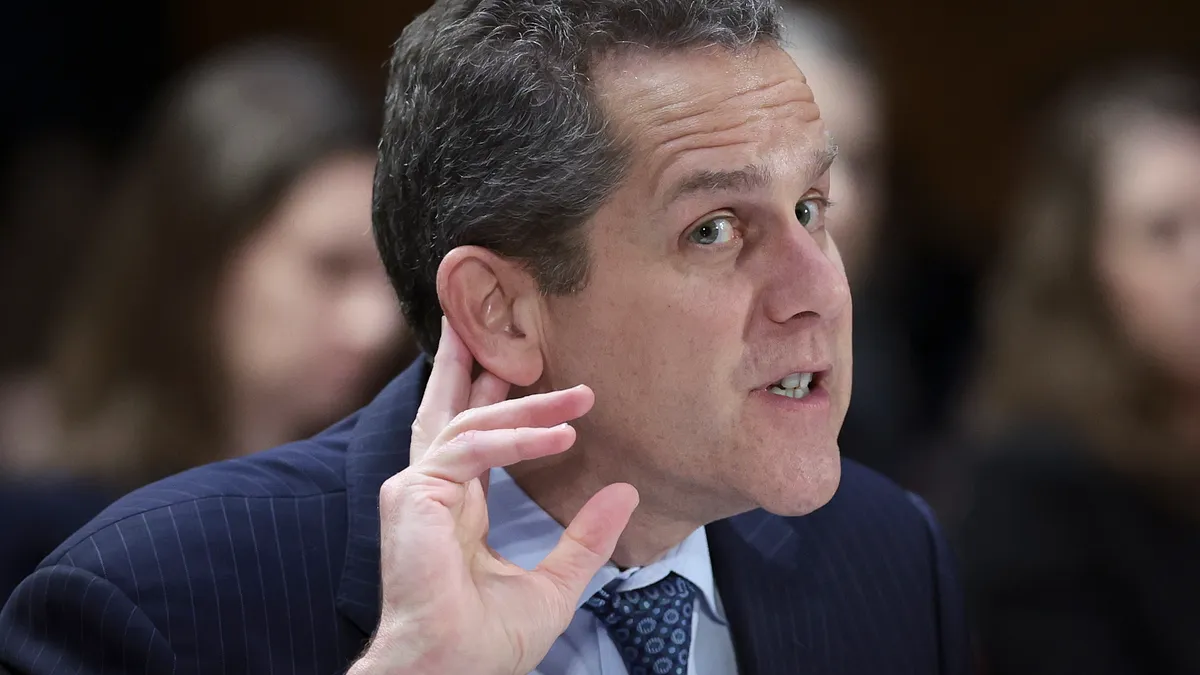Five bank trade groups on Wednesday outlined their concerns over potential changes to bank capital requirements that Michael Barr, the Federal Reserve’s vice chair for supervision, previewed Monday.
The trade groups — the American Bankers Association, Bank Policy Institute, Financial Services Forum, Institute of International Bankers Securities Industry and Financial Markets Association — called for the regulator to give banks adequate time to comment on the recommendations, adding they would “have a profound effect on the U.S. banking system and U.S. capital markets,” and that they merit “careful consideration.”
In a letter to Fed Chair Jerome Powell, the groups called for the Federal Reserve to extend the public comment period for its upcoming capital rule to 120 days, instead of the standard 60- or 90-day period.
In a speech at Washington’s Bipartisan Policy Center on Monday, Barr recommended that banks and bank holding companies with $100 billion or more in assets be subject to enhanced capital requirements.
Barr also called for an expansion of long-term debt requirements for institutions with $100 billion or more in assets, as well as a review of the regulator’s annual stress testing framework.
Federal regulators are expected to unveil a formal proposal for bank capital standards in the coming weeks. Those changes would mark the final implementation of Basel III, a set of international regulatory standards created in the wake of the 2007-08 financial crisis.
“These changes would increase capital requirements overall, but I want to emphasize that they would principally raise capital requirements for the largest, most complex banks,” Barr said Monday. “We intend to consider comments carefully and any changes would be implemented with an appropriate phase-in.”
Trade groups argued Barr’s recommendations considered the benefits of higher capital requirements but not the costs.
“Those costs are universally recognized in both academic research and, more importantly, real-world experience,” the groups wrote. “No records of the review were provided; nor is there any evidence that it considered the interaction of the capital framework with other prudential regulations — seemingly the definition of a ‘holistic’ review.”
The groups said the latest stress test results, as well as statements from other regulators, signal that the nation’s largest banks are well-capitalized.
“The Vice Chair’s speech reflected a very different view, and we expect that any proposed rule based on that view will document its justification,” they wrote.
The goal of the 2017 Basel agreement, the trade groups added, was to avoid increasing capital for large banks “and instead [to] ‘reduce regulatory capital variability, and level the playing field among internationally active banks.’”














